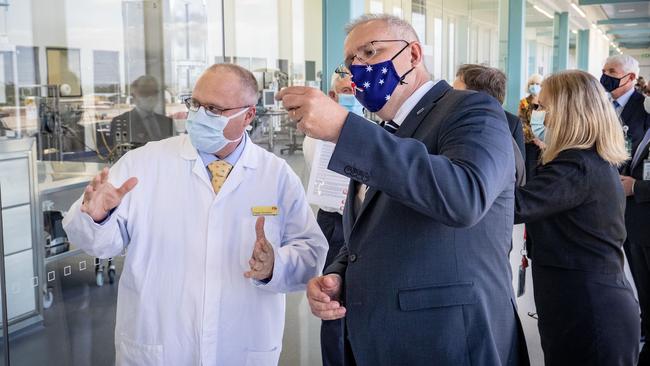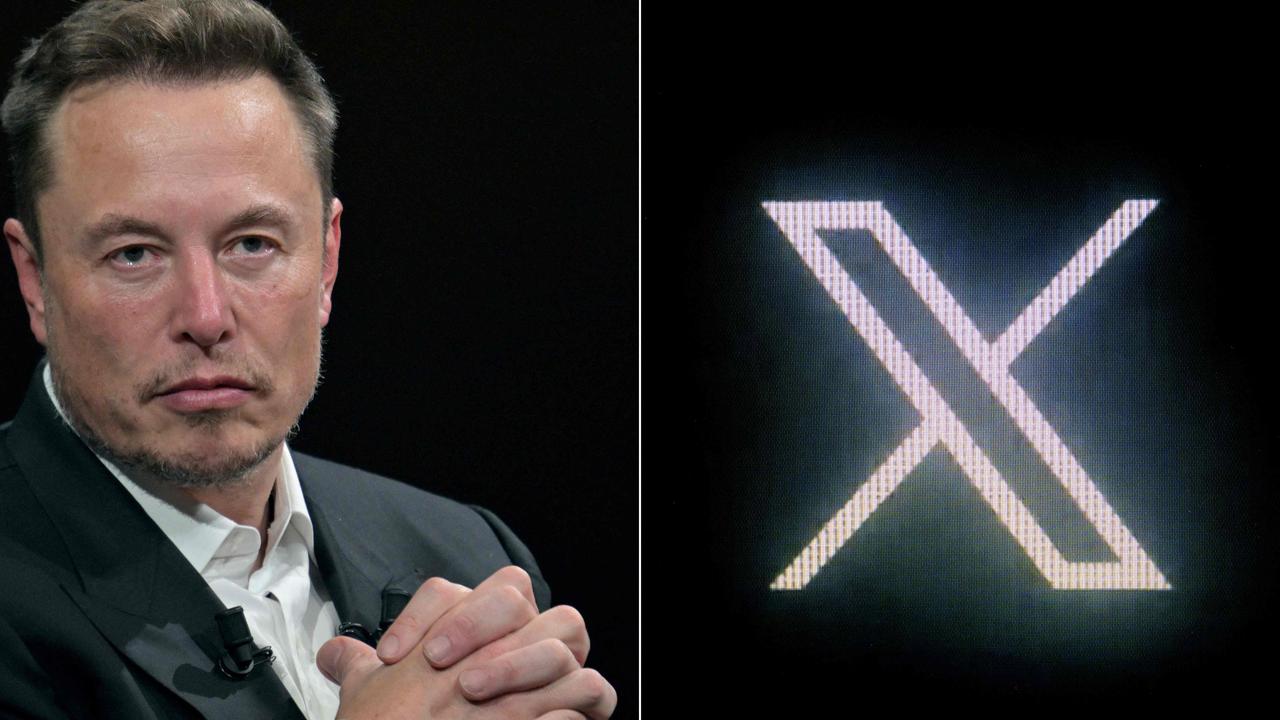CSL, University of Queensland coronavirus vaccine trials halted
Researchers considered the potential for false HIV positives in the COVID-19 vaccine a ‘manageable risk’. But trials have now been halted.

CSL and University of Queensland researchers knew of the potential for false HIV positives in the COVID-19 vaccine they were developing - months before the Morrison government bought 50 million doses - thinking it was a “manageable risk”.
But what it didn’t expect was for those false positive tests to show up in all 216 trial participants for the vaccine - a move that threatened to undermine the global COVID-19 vaccine effort.
The federal government has now terminated its orders for the CSL and University of Queensland vaccine - which were part of a $1.7bn deal to secure four types of coronavirus vaccine to protect Australians - fearing it would erode public confidence in all coronavirus vaccines.
CSL and the University of Queensland’s vaccine used technology known as a molecular clamp, rather than a live virus, which used two fragments of a protein found in HIV.
Russell Basser, senior vice president research and development at CSL’s vaccine arm Seqirus, said while researchers thought there would be potential for false HIV positives, they thought they could manage the risk.
Dr Basser stressed none of the 216 trial participants had contracted HIV and the vaccine was safe but “in the end we felt the burden was too great”.
“Because this wasn’t a safety issue... we were trying to understand whether it would be manageable - and that is how quickly the (false positive) effect might disappear - and whether alternate acceptable testing mechanisms be defined,” Dr Basser said.
“The government was aware and we were working together in the hope we could find an acceptable path forward, but I think it’s fair to say as other vaccine data came out … that’s when we reached an agreement with government to no longer proceed.
“We worked with HIV experts… to try to map out a different way for HIV tests but it got harder the more we looked into it. In the end, we felt the burden was too great.”
CSL’s shares fell 2.4 per cent to $294.05 following the announcement.
University of Queensland vaccine co-lead, Professor Paul Young, said that they decided to proceed with using HIV fragments in the vaccine earlier this year because if researchers had not and used other proteins, it would have set the vaccine’s development back 12 months.
“We were anticipating that there may be an issue, which is why we included it in the original consent forms for our vaccinees, but we weren’t expecting that all of the vacinees would respond with this low-level antibody that was picked up in the tests. That was the unexpected finding.”
Blood samples from study participants were tested after vaccination and CSL and University of Queensland researchers found that the vaccine’s molecular clamp antibodies caused a false positive on a range of HIV tests.
CSL said follow-up tests confirmed that there is no HIV virus present, just a false positive on certain HIV tests. “There is no possibility the vaccine causes infection,” the company said.
The Morrison government has now terminated a deal to buy 50 million doses of the CSL and University of Queensland vaccine and it secured an extra 30 million doses of a different type of vaccines.
But the termination of the CSL deal, leaves the government with a deficit of about 20 million doses to vaccinate Australians against COVID-19.
CSL will also manufacture the AstraZeneca vaccine, which it was planning to produce in parallel with the University of Queensland vaccine. The Commonwealth had paid CSL $300m to help prepare its advanced manufacturing facility at Broadmeadows in Melbourne’s north to produce the two types of vaccines.
Prime Minister Scott Morrison said: “At no stage did we believe all four vaccines would get through that process”.
“The University of Queensland vaccine will not be able to progress based on scientific advice and will no longer feature as part of Australia’s vaccine plan,” he said.
Health Minister Greg Hunt says Australia is still in a “strong position” to roll out COVID-19 vaccines early next year, despite the termination of CSL trials.
“Just to let you know, all up, the Australian vaccine portfolio - 53.8 million AstraZeneca units - that’s enough to cover the whole of population,” Mr Hunt said.
“Fifty-one million Novavax units - that’s enough to cover the whole of population,” he said.
“Ten million Pfizer units, which is the advice that we have is appropriate.”

All up, more than 140 million units of vaccine will be available to Australia - one of the highest ratios of vaccine purchases and availability to population in the world - Mr Hunt said.
CSL chief scientific officer Andrew Nash said the termination of its involvement with the University of Queensland vaccine “highlights the risk of failure associated with early vaccine development”.
“CSL and Seqirus (CSL’s vaccine division) are committed to continuing our work to protect the Australian population against COVID-19. Manufacture of approximately 30 million doses of the Oxford/AstraZeneca vaccine candidate is underway, with first doses planned for release to Australia early next year,” Dr Nash said.
Clinical trials are risky and go through a robust process to ensure their safety and effectiveness. AstraZeneca has halted its phase three trials twice after participants developed neurological illnesses after being injected.
The Bill Gates backed Coalition for Epidemic Preparedness Innovations (CEPI), which is based in Oslo, provided UQ up to $US10.6m ($14.07m) to develop its “molecular clamp” vaccine platform, a transformative technology patented by UniQuest, UQ’s technology transfer company, that enables rapid vaccine design and production.






To join the conversation, please log in. Don't have an account? Register
Join the conversation, you are commenting as Logout